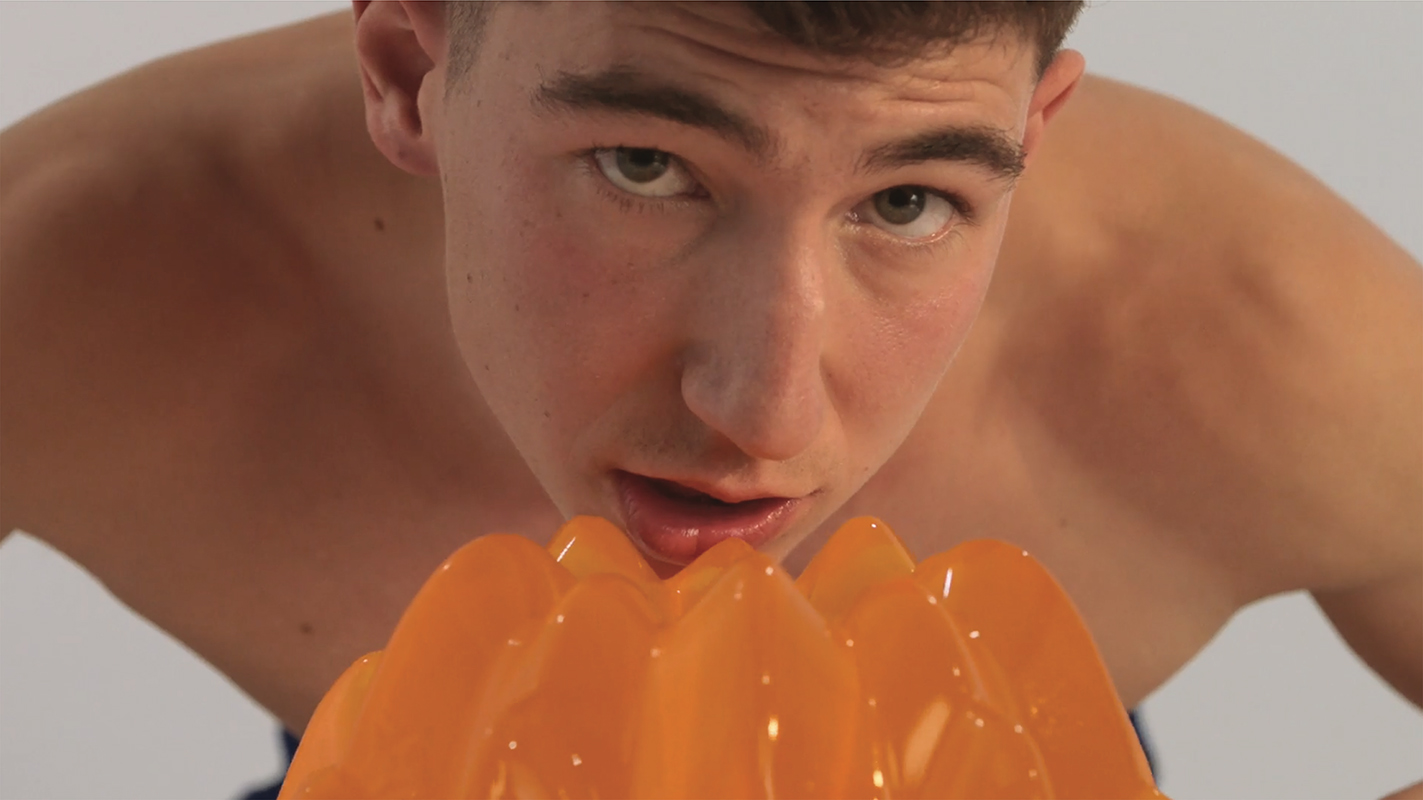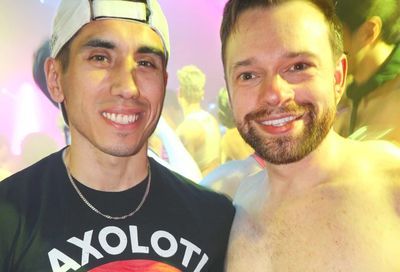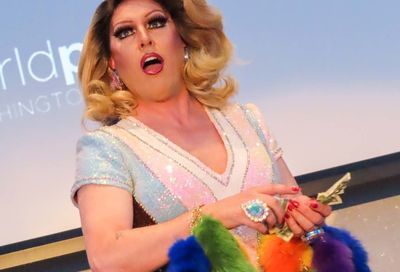Janelle Monáe To The LGBTQ Community: “Protect Each Other”
Janelle Monáe took inspiration from her 2018 album Dirty Computer to create her debut work of fiction, 'The Memory Librarian.'

“I’m having the best time of my life,” Janelle Monáe says. “I’m in the most carefree, ‘I don’t have shit to prove’-phase that I’ve ever been in.” As a result, the queer pop star conceded during a recent Zoom interview with Metro Weekly she’s not sure when she will next release new music.
Aside from the occasional single written for film — including “Turntables” from the 2020 documentary All In: The Fight for Democracy and “That’s Enough” from the 2019 remake of Disney’s The Lady and the Tramp — Monáe hasn’t put out new music since 2018.
With each album, she “wanted to prove that I could be successful at being myself, being honest with myself as a human. But I think at this point, I’ve already done that.”
Monáe certainly achieved that with 2018’s Dirty Computer, released in the wake of her officially coming out as LGBTQ — specifically, as bi- and pan-sexual, with nonbinary added more recently.
As high concept and innovative as the others in her repertoire, the 14-track album would go on to earn two Grammy nominations, including one for Album of the Year.
A companion 46-minute dystopian sci-fi film, or “emotion picture,” was also released, coalescing seven album-produced music videos to tell a broader story about repression and rebellion in a homophobic, government-controlled state.
Dirty Computer has continued to inspire the 36-year-old, helping motivate her to pursue an altogether new creative endeavor during the pandemic.
The result is her debut book, The Memory Librarian: And Other Stories of Dirty Computer. To develop the collection of speculative short fiction, Monáe collaborated with five noted female and non-binary authors. Each author will appear for a different stop on the Memory Librarian Tour over the next week, with Alaya Dawn Johnson joining Monáe on Tuesday, April 19, the day of the book’s launch, at Washington, D.C.’s Sixth and I Historic Synagogue.
“This book came from the soil of Dirty Computer,” she says. “It continues the concept of what it would be like to live under this totalitarian regime, where they are taking memories of people who they deem as dirty. [But] these people refuse to assimilate, they refuse to allow the things that make them unique — the bugs and the viruses that they have in their dirty computers — from being erased.”
They do so also in no small part because of memory’s fundamental importance. “Memory of who we’ve been — of who we’ve been punished for being — was always the only map into tomorrow,” as Monáe writes in the book’s introduction. Hope for the future, in other words, depends on our memory of the past.
“The best thing about the literary world,” Monáe says, “is you can really just play with people’s imaginations. You can say a lot in a book that you really can’t say in a film.” Ultimately, she wants the book to make readers “feel hopeful about the future, not sad and depressed.”
Within the book, Monáe and her collaborators “talk about everything from sexuality, plurality, to surveillance culture,…love, acceptance, gender plurality, everything. And the leads in these stories are Black and brown folks, those in the LGBTQIA+ community.”
The chapter “The Memory Librarian,” written with YA novelist Alaya Dawn Johnson, focuses on the woman uncovering her past identity as she falls in love with another woman. Another chapter, written with author/sociologist Eve L. Ewing, explores the concept of “time poverty, and of Black and brown folks reclaiming their time?…. What things would you actually do to get back the time that was lost from you and your ancestors?”
In the here and now of real life, Monáe is concerned about the growing efforts to silence or ban discussion of LGBTQ issues and content, including “the LGBTQIA+ community’s books…getting banned in high schools. Real erasure is happening in our community and let’s continue to fight to protect it.”
Monáe advises fellow queers to “keep being free-ass motherfuckers! Look out for each other, protect each other,…make sure you are thriving,” adding, “I just pray for more beautiful memories for every [person] in our community.”
The Memory Librarian Tour includes a discussion with Monáe and collaborator Alaya Dawn Johnson, with Kimberly Drew moderating, on Tuesday, April 19, at 7 p.m., at Sixth and I, 600 I St. NW. Tickets, including a copy of the book, are $40 for in-person attendance, $34 for virtual. Call 202-408-3100 or visit www.sixthandi.org.
The Memory Librarian: And Other Stories of Dirty Computer by Janelle Monáe will be published Tuesday, April 19, by Harper Voyager. Retail cost is $28.99. Visit www.harpercollins.com/pages/the-memory-librarian.
Support Metro Weekly’s Journalism
These are challenging times for news organizations. And yet it’s crucial we stay active and provide vital resources and information to both our local readers and the world. So won’t you please take a moment and consider supporting Metro Weekly with a membership? For as little as $5 a month, you can help ensure Metro Weekly magazine and MetroWeekly.com remain free, viable resources as we provide the best, most diverse, culturally-resonant LGBTQ coverage in both the D.C. region and around the world. Memberships come with exclusive perks and discounts, your own personal digital delivery of each week’s magazine (and an archive), access to our Member's Lounge when it launches this fall, and exclusive members-only items like Metro Weekly Membership Mugs and Tote Bags! Check out all our membership levels here and please join us today!























You must be logged in to post a comment.